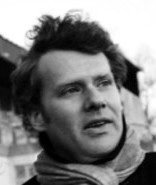Reading and Writing 101: Digital Illiteracy in the Humanities
 Seminar by Jan Hein Hoogstad
Seminar by Jan Hein Hoogstad
Remark: This seminar will be organized twice. Both on 12/07 and 14/07.
Mourning the decay of critical literacy has become a habitual ritual amongst scholars in the humanities. "No-one reads books anymore," is an all too often heard complaint which is usually followed by a variation on the following theme: "The media constantly bombard us with plethora of news, noise and images. The resulting sensory overload prevents people from taking distance, acquiring knowledge, and critically reflect on the world and their life, etc."
Convincing as this diagnosis of the contemporary human condition may sound - which is unsurprising given the fact that it has been constantly reiterated for at least hundred years - I believe that it simultaneously attributes too much and not enough agency to media. Too much, because the critique is based on the performative contradiction that people are fully enslaved by technology. Too little, since media - old and new - do actually shape and transform practices of reading and writing. By repeatedly and uncritically reproducing an oversimplified account of technology, the humanities are incapable of taking these constantly changing modes of literacy seriously.
One of the most dominant misconceptions about contemporary media is that they are image rather than text based. Nothing is further removed from the truth: the visual extravaganza of blockbuster movies and computer games is, in fact, surface-effect and eye-wash (Kittler, "Gramophone" 1). Before these overvalued and overanalyzed images appear on the big or small screen, programmers need to write billions lines of codes in a multitude of high-, middle-, and low-level programming languages. Coding, however, does not render other reading and writing practices - everyday speech, legal discourse, poetry, etc - obsolete. It merely complements and displaces them.
So-called 'critical literacy' is simply a specific practice of reading and writing amongst many. The humanities are not at war with illiteracy, they are simply protecting their own institutionalized practice against others. The scholar's nostalgia for books is actually strategic rather than sincere. Acknowledging the possibility of superior - or even merely different - modes of literacy would entail a redefinition of disciplinary boundaries and endanger our privileged position.
The habitual mourning of critical literacy, I argue, simply covers up our own illiteracy. Confronted with a universe of techno-codes (Flusser 40), it is we, scholars in the humanities, that cannot read and write. Rather than the omnipresence of technical media, it is a stubborn, fear-inspired refusal to leave our comfort zone that threatens the humanities. Tragically, this institutionalized xenophobia obscures the fact that programming languages are actually not that different from other languages at all. In fact, it is only a lack of self-confidence prevents the humanities from realizing that our 'traditional' practice of reading and writing is actually well-fitted to critically engage digital media.
This seminar makes an cautious attempt to go beyond the false dichotomy between 'traditional' and digital literacy. We will discuss theoretical texts that problematize the practice of reading and writing in philosophy (Friedrich Nietzsche), everyday life (Michel de Certeau), love (Roland Barthes), literature (Ralph Ellison), and programming (Friedrich Kittler). Despite the heterogeneity of practices, these texts all share the assumption that language can never be mastered. Given this structural linguistic incompetence, critical literacy can paradoxically only be conceived as the affirmation of (a certain degree of) illiteracy. In that sense, our unfamiliarity with code is no different than our relation to other languages.
Still, in order to seriously probe digital literacy, theory alone cannot be enough. Being able to read and write code is key to understanding otherwise enigmatic texts that produce contemporary cultural objects. To compensate for a (possible) lack of coding experience, we will have a critical look at snippets from a few different programming and markup languages (C, C++, markdown, X(HT)ML, XSLT). The aim of this exercise is explicitly not to become programmers ourselves. On the contrary, the motivation for learning how to read and write code is that it is indispensable to critical literacy now.
Readings
Download all the required - and some of the recommended - readings for this seminar here.
Required readings
Anderson, Chris. "The End of Theory: The Data Deluge Makes the Scientific Method Obsolete." Wired. 23 June, 2008. Web. 2 July, 2011.
Bolter, Jay David. "Time and Progress in the Computer Age." Turing's Man: Western Culture in the Computer Age. Chapel Hill: The University of North Carolina Press, 1984. 100-123. Print.
Flusser, Vilém. "The Codified World." Writings. Minneapolis: University of Minnesota Press, 2004. 35-41. Print.
Kittler, Friedrich. "Universities: Wet, Hard, Soft, and Harder." Critical Inquiry 31.1 (2004): 244-255. Print.
Lafore, Robert. "Chapter 1: The Big Picture." Object-Oriented Programming in C++. 4th ed.* Indianapolis: Sams Publishing, 2002. 9-27. Print.
Sample, Mark. "Criminal Code: The Procedural Logic of Crime in Videogames." Sample Reality. Own your ideas. Make them free. January 14, 2011. Web. 2 July, 2011.
Recommended readings
Barthes, Roland. "How this Book is Constructed." A lover's discourse : fragments. New York N.Y. Hill and Wang, 2010. Print.
Certeau, Michel de. The Practice of Everyday Life. Berkeley: University of California Press, 1984. Print.
Ellison, Ralph. "Living with Music." *Shadow and Act." New York: Signet, 1966. 187-197. Print.
Kittler, Friedrich. Gramophone, Film, Typewriter. Stanford: Stanford University Press, 1999. Print.
Kittler, Friedrich. Literature, Media, Information Systems: Essays. Amsterdam: OPA, 1997. Print.
McLuhan, Marshall. "The Gadget Lover. Narcissus as Narcosis." Understanding Media: The Extensions of Man.London: Routledge 45-52, 2001. Print.
Nietzsche, Friedrich. The Gay Science: with a prelude in German rhymes and an appendix of songs. Cambridge: Cambridge University Press, 2004. Print.




